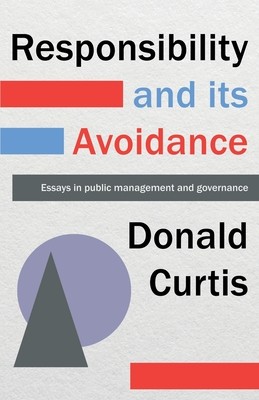
- We will send in 10–14 business days.
- Author: Donald Curtis
- Publisher: Troubador Publishing
- Year: 2017
- Pages: 384
- ISBN-10: 1788035429
- ISBN-13: 9781788035422
- Format: 14 x 21.6 x 2.1 cm, minkšti viršeliai
- Language: English
- SAVE -10% with code: EXTRA
Reviews
Description
We live in anxious times, all too aware that governments can fail, markets too collapse and that NGOs, parties and other organisations in civil society are also prone to lose sight of the common good. Responsibility and its Avoidance seeks to understand the dynamic processes through which people struggle to produce a sound environment, stable trading arrangements, competent governance, personal security and other aspects of a 'liveable society'. In Responsibility and its Avoidance, Donald Curtis brings a practitioner focus as a project manager in development to his essays, as well as a UK and World citizen concern for current social dilemmas. He seeks and occasionally finds, enlightenment in academic theory but, aware that contradictions in governance are as old as history, sometimes seeks solace in other people's cultures or in literature. A key finding is that good governance is a matter of exercised responsibility. What emerged, through the themes of the various chapters, is that society's attempts to create constitutions, governance structures and management processes through which leaders and citizens can exercise responsibility for the public good, run up against an avoidance paradox. As soon as an agreed allocation of responsibilities is achieved, with obligations and commitments set out and accountability processes established, perverse incentives set in. Common purpose can always be deemed personally costly, encouraging neglect, manipulation, avoidance or other forms of negation. The socially concerned citizen must commit to constant struggle against institutional decay and corruption; so runs Curtis' thesis: responsibility is not good unless it is shared.
EXTRA 10 % discount with code: EXTRA
The promotion ends in 21d.20:07:26
The discount code is valid when purchasing from 10 €. Discounts do not stack.
- Author: Donald Curtis
- Publisher: Troubador Publishing
- Year: 2017
- Pages: 384
- ISBN-10: 1788035429
- ISBN-13: 9781788035422
- Format: 14 x 21.6 x 2.1 cm, minkšti viršeliai
- Language: English English
We live in anxious times, all too aware that governments can fail, markets too collapse and that NGOs, parties and other organisations in civil society are also prone to lose sight of the common good. Responsibility and its Avoidance seeks to understand the dynamic processes through which people struggle to produce a sound environment, stable trading arrangements, competent governance, personal security and other aspects of a 'liveable society'. In Responsibility and its Avoidance, Donald Curtis brings a practitioner focus as a project manager in development to his essays, as well as a UK and World citizen concern for current social dilemmas. He seeks and occasionally finds, enlightenment in academic theory but, aware that contradictions in governance are as old as history, sometimes seeks solace in other people's cultures or in literature. A key finding is that good governance is a matter of exercised responsibility. What emerged, through the themes of the various chapters, is that society's attempts to create constitutions, governance structures and management processes through which leaders and citizens can exercise responsibility for the public good, run up against an avoidance paradox. As soon as an agreed allocation of responsibilities is achieved, with obligations and commitments set out and accountability processes established, perverse incentives set in. Common purpose can always be deemed personally costly, encouraging neglect, manipulation, avoidance or other forms of negation. The socially concerned citizen must commit to constant struggle against institutional decay and corruption; so runs Curtis' thesis: responsibility is not good unless it is shared.


Reviews